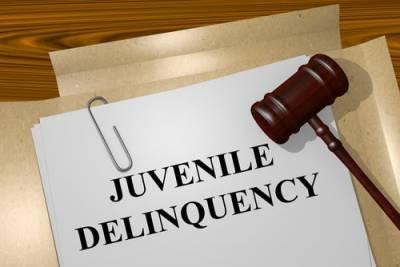Recent Blog Posts
Caught Shoplifting in Stamford
 Both juveniles and adults will occasionally engage in shoplifting, for a variety of reasons. However, if you are caught and charged with the theft crime, the consequences can be quite severe. Talking to an experienced attorney can help you understand your options and how best to handle the situation, as trying to navigate the process on your own can lead to significant financial and social issues later on.
Both juveniles and adults will occasionally engage in shoplifting, for a variety of reasons. However, if you are caught and charged with the theft crime, the consequences can be quite severe. Talking to an experienced attorney can help you understand your options and how best to handle the situation, as trying to navigate the process on your own can lead to significant financial and social issues later on.
Can Be Misdemeanor Or Felony
In Connecticut, there is no such thing as a ‘shoplifting’ charge; rather, a person is charged with larceny, with the degree depending on the dollar value of the item or items they stole. Generally, a person is charged with shoplifting if it can be shown that they intentionally took possession of items offered at a ‘place of sale’ - for example, a store, a flea market or garage/tag sale - without any intent to pay for them. There are six degrees of larceny in Connecticut, with the values ranging from $500 and under for sixth-degree larceny, to over $20,000 for a charge of first-degree larceny.
Common Questions About Juvenile Arrests
 In Connecticut, anyone under the age of 18 who is accused of committing a crime will generally be arrested and made to appear before a juvenile court to discuss the case. If your family has never before been involved with the law, this whole process can be a terrible and frightening time. An experienced juvenile justice attorney can help answer any questions and alleviate concerns that you might have so that your child can be certain to have their rights protected during the legal process.
In Connecticut, anyone under the age of 18 who is accused of committing a crime will generally be arrested and made to appear before a juvenile court to discuss the case. If your family has never before been involved with the law, this whole process can be a terrible and frightening time. An experienced juvenile justice attorney can help answer any questions and alleviate concerns that you might have so that your child can be certain to have their rights protected during the legal process.
Q: If my child is arrested, do I have any rights during the process?
A: Yes. Parents have a right to be informed about their child’s arrest and are permitted to refuse any interrogation of their children. Arrested juveniles also have a fairly high chance of being released into a parent’s custody unless the alleged offense is very serious (in which case, it will likely be transferred to adult court, where your child will be treated in a similar manner to any other adult offender).
Connecticut Consequences for Marijuana Possession
 With the increased nationwide push toward legality for small amounts of marijuana, it can be very easy to assume that possession of marijuana will not lead to any potential criminal consequences. This is, however, not the case - aside from small exceptions, possession of marijuana will wind up leading to fines, possible jail time, and potential social consequences for the future, especially if you are a juvenile. If you have been charged with possession of marijuana, you need to quickly enlist an attorney who has experience with these cases.
With the increased nationwide push toward legality for small amounts of marijuana, it can be very easy to assume that possession of marijuana will not lead to any potential criminal consequences. This is, however, not the case - aside from small exceptions, possession of marijuana will wind up leading to fines, possible jail time, and potential social consequences for the future, especially if you are a juvenile. If you have been charged with possession of marijuana, you need to quickly enlist an attorney who has experience with these cases.
Fines and Potential Prison Time
As with most other drug charges, possession of marijuana can be a misdemeanor or a felony charge in Connecticut, depending on how much you are caught with. Generally, possessing amounts between one and four ounces will be charged as a misdemeanor, while amounts four ounces and over will be charged as felonies, carrying the appropriate jail time. A misdemeanor first offense is less likely to result in jail time, especially for younger adults, but you may receive up to one year in jail, plus a $1,000 fine, depending on your specific situation.
Violent Crimes in Connecticut
 Like in any other state, Connecticut does experience its share of violent crime, though it still occurs less often than one might think. At the same time, when someone is arrested and charged with a violent crime, the pressure is on the prosecution to make certain that the right person is convicted. If you have been arrested and charged with any crime of violence, it is crucial that you seek out an experienced criminal defense attorney as soon as possible, as the stakes cannot be higher.
Like in any other state, Connecticut does experience its share of violent crime, though it still occurs less often than one might think. At the same time, when someone is arrested and charged with a violent crime, the pressure is on the prosecution to make certain that the right person is convicted. If you have been arrested and charged with any crime of violence, it is crucial that you seek out an experienced criminal defense attorney as soon as possible, as the stakes cannot be higher.
Facing Serious Consequences
A violent crime is any offense involving either bodily injury or the threat of bodily injury, to another person. Some examples, like robbery, can involve the threat of bodily injury being part of committing another criminal offense, but this is not strictly necessary. There is no specific “violent crimes” statute in Connecticut, but many of them are grouped in a similar legal place - in other words, many of them carry the same fines and prison sentences if someone is convicted. Crimes such as assault and battery, kidnapping, domestic violence, murder/manslaughter, sexual assault, and various weapons crimes are just some of the offenses classified as violent in Connecticut.
Criminal Fraud in Connecticut
 There are a variety of different theft crimes articulated in Connecticut law, but one of the most potentially damaging to its victims is criminal fraud. Fraud is a serious issue that can tar you with the brush of dishonesty for the rest of your life if you are convicted, and if you are charged with a fraud crime, it is crucial that you react appropriately by enlisting an experienced attorney. Fraud crimes are often very specific, and trying to defend yourself alone is not a good idea.
There are a variety of different theft crimes articulated in Connecticut law, but one of the most potentially damaging to its victims is criminal fraud. Fraud is a serious issue that can tar you with the brush of dishonesty for the rest of your life if you are convicted, and if you are charged with a fraud crime, it is crucial that you react appropriately by enlisting an experienced attorney. Fraud crimes are often very specific, and trying to defend yourself alone is not a good idea.
Deceit and Misrepresentation
There are many different crimes that fall under the umbrella of fraud in Connecticut. More specific examples include identity theft, insurance fraud, money laundering, or wire fraud. The central component of these types of crimes is referred to as a fraudulent transaction - one induced by deception or willful misrepresentation, that confers gain on the person who induced it. Generally, if the prosecution can establish that a fraudulent transaction happened and that it happened because of your deception or misrepresentation, it will be able to establish your guilt.
Has Your Child Been Charged with Vandalism?
 When a young person is caught damaging property, it can too often signify that something is wrong at home, or at school. However, vandalism is still a crime in Connecticut, and very often, juvenile charges may be brought in order to teach the young person a lesson. Criminal mischief, as Connecticut law refers to vandalism, can remain on your child’s record and cause them problems in the future. Contacting an attorney is a crucial step to deal with these charges.
When a young person is caught damaging property, it can too often signify that something is wrong at home, or at school. However, vandalism is still a crime in Connecticut, and very often, juvenile charges may be brought in order to teach the young person a lesson. Criminal mischief, as Connecticut law refers to vandalism, can remain on your child’s record and cause them problems in the future. Contacting an attorney is a crucial step to deal with these charges.
Criminal Mischief
Criminal mischief in Connecticut is defined as causing any kind of physical damage to another person’s property - including, but not limited to vandalism. The more serious degrees require the intent to cause damage, while third and fourth-degree criminal mischief do not, and the actual damage can be as minor as a small scratch or as large as an all-consuming fire. There are several different reasons why these types of offenses happen for both juveniles and adults, including domestic disputes, pranks, or simply out of malice.
Am I Liable If My Child Commits A Crime?
 A parent’s primary duty is to help their children grow up into responsible citizens, but sometimes, mistakes will be made along the way. If your child commits a civil offense or a crime, the laws of the state of Connecticut will sometimes hold a parent liable for their child’s wrongdoing, especially if that child is under the age of 18. It is crucial to understand what this might mean for you and your child both, and to seek the help of an attorney if you wind up in a situation that you do not understand.
A parent’s primary duty is to help their children grow up into responsible citizens, but sometimes, mistakes will be made along the way. If your child commits a civil offense or a crime, the laws of the state of Connecticut will sometimes hold a parent liable for their child’s wrongdoing, especially if that child is under the age of 18. It is crucial to understand what this might mean for you and your child both, and to seek the help of an attorney if you wind up in a situation that you do not understand.
Statutory Causes of Action
The relevant law on parental liability is fairly wide-ranging. It states that a parent or guardian of any minor who “willfully or maliciously” causes property damage or injury to “any person” will be jointly and severally liable with that minor for any damages up to $5,000. In addition, if a minor takes a motor vehicle without the owner’s permission and causes damage, the same liability will apply. The law places responsibility on parents to police their children, so as to avoid liability themselves.
Charged with Assault in Connecticut?
 Assault crimes in Connecticut are those that involve one person attacking another, either with or without a weapon, with the intent to make contact. Depending on the degree, you do not need to have intended to injure the person you attacked - but the injured person and the state have a right to seek consequences against you nonetheless. If you have been charged with assault, you need an experienced attorney to help protect your rights.
Assault crimes in Connecticut are those that involve one person attacking another, either with or without a weapon, with the intent to make contact. Depending on the degree, you do not need to have intended to injure the person you attacked - but the injured person and the state have a right to seek consequences against you nonetheless. If you have been charged with assault, you need an experienced attorney to help protect your rights.
Mandatory Minimums
There are several different levels of assault charges in Connecticut, ranging from assault in the first degree, down to assault in the third degree with a weapon. In addition, assaults on different types of victims may raise or lower the degree of the charges - for example, assaulting a child or an elderly person is considered a more serious crime, due to the more fragile nature of the victim in these cases. This is especially true if the victim’s injuries are severe; the worse the harm suffered, the more likely one is to face serious consequences.
Charged with a Second DUI in Stamford?
 Driving while under the influence in Connecticut is a very serious crime, with the potential to cause fatalities and injuries not only to the people involved, but also to pedestrians. If you are charged with one, the consequences will be serious, but a second DUI ups the proverbial stakes, and there will be far fewer chances to try and seek a lesser sentence. An attorney is absolutely crucial at this stage in order to protect your rights.
Driving while under the influence in Connecticut is a very serious crime, with the potential to cause fatalities and injuries not only to the people involved, but also to pedestrians. If you are charged with one, the consequences will be serious, but a second DUI ups the proverbial stakes, and there will be far fewer chances to try and seek a lesser sentence. An attorney is absolutely crucial at this stage in order to protect your rights.
First vs Second Offense
Driving while under the influence is a crime in Connecticut, with a first offense being a misdemeanor carrying up to six months in jail plus a fine of up to $1,000. In addition, your driver’s license will be suspended for at least 45 days and your car will be fitted with an ignition interlock device for up to one year. This is all in addition to probation, which has expensive fees that can add up. Depending on your specific situation, you may be able to seek entry into a pretrial diversion program, which can result in your charges being dismissed if you comply with all the required terms.
Caught Possessing Drugs in Fairfield County?
 Possessing any kind of illegal drugs in Connecticut (with the exception of very small amounts of marijuana) is a serious offense in Connecticut, and if you are caught, you will face consequences that can be long-lasting, especially for juveniles. Do not try to navigate the court process alone; enlist a knowledgeable attorney who has experience in these cases to make sure that your rights are protected and the outcome of your case is appropriate.
Possessing any kind of illegal drugs in Connecticut (with the exception of very small amounts of marijuana) is a serious offense in Connecticut, and if you are caught, you will face consequences that can be long-lasting, especially for juveniles. Do not try to navigate the court process alone; enlist a knowledgeable attorney who has experience in these cases to make sure that your rights are protected and the outcome of your case is appropriate.
Sentences Are Stiff
Connecticut’s drug laws are specific and uncompromising, and possession is seen as a significant offense, despite the decriminalization of possessing less than ½ an ounce of marijuana. Possessing more than ½ an ounce is generally a misdemeanor while possessing some harder drugs like narcotics can be a felony charge, and possessing hallucinogens like LSD or MDMA is punishable by up to five years in prison for a first offense. Because of the perceived risk to society, drug possession is a crime that prosecutors will often try to pursue aggressively.







